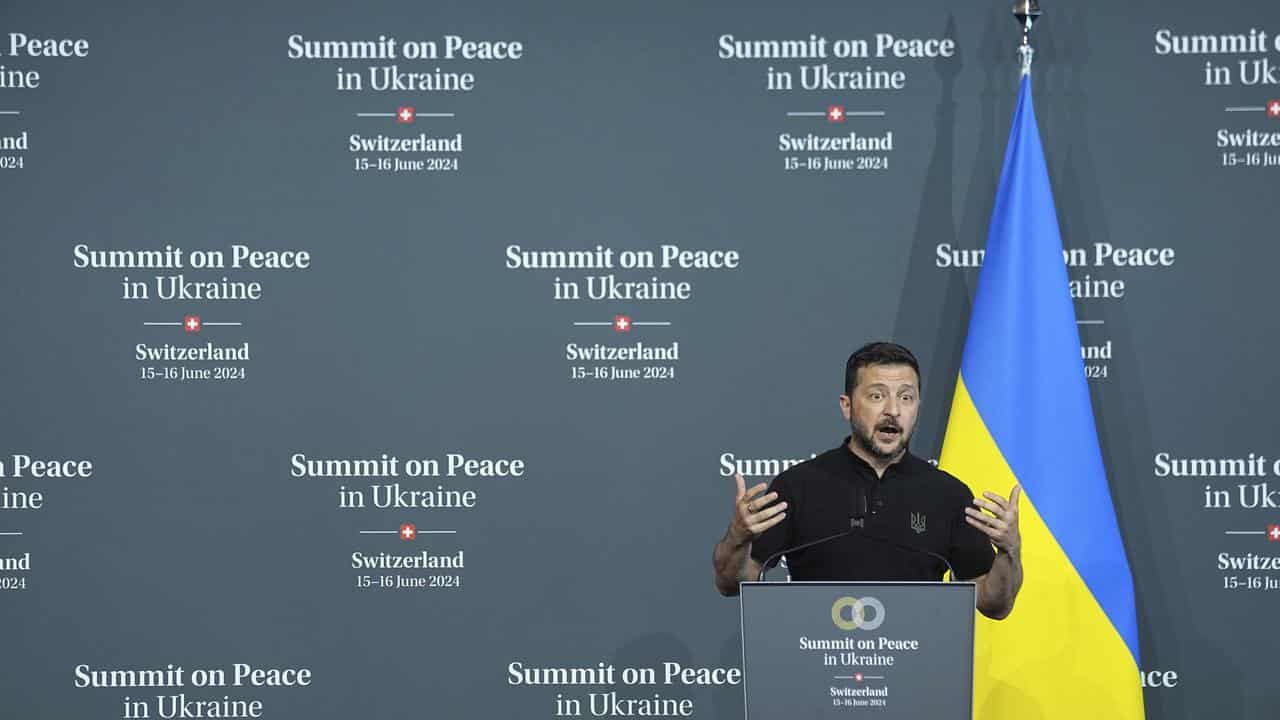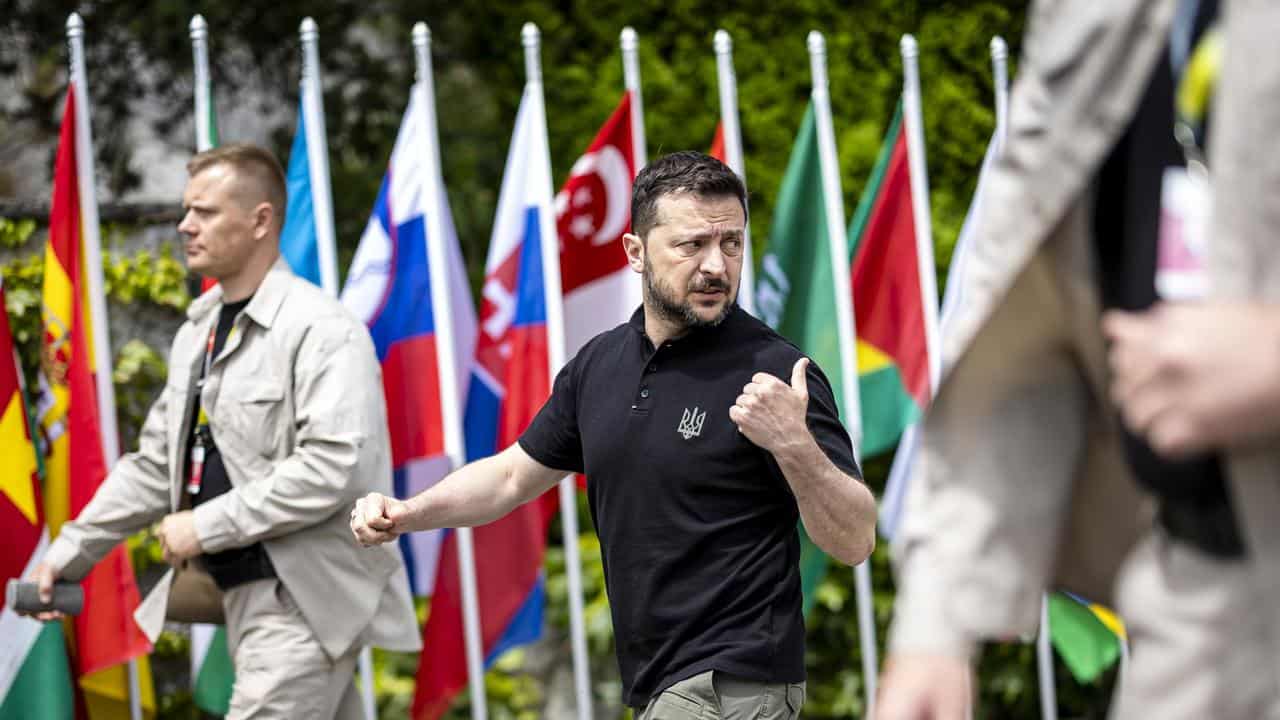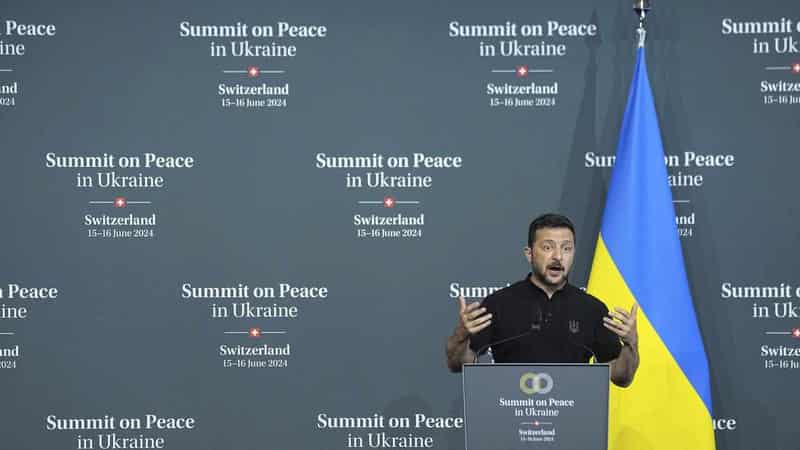
Nearly 80 countries have called for the “territorial integrity” of Ukraine to be the basis for any peace agreement to end Russia’s two-year war, at the close of a summit in Switzerland.
78 of the 93 countries represented at the two-day event signed a final document, which focused on issues of nuclear safety, food security and the exchange of prisoners.
The joint communique capped a conference marked by the absence of Russia, which was not invited. Many attendees expressed hope that Russia might join in on a road map to peace in the future.
Six countries from the G20 group of the world's most important economic powers - Brazil, Mexico, Saudi Arabia, South Africa, India and Indonesia - did not back the communique, according to a list published by the Swiss hosts.
Armenia, Bahrain, Thailand, Libya, the United Arab Emirates, Colombia and the Vatican also did not back the document released at the Bürgenstock mountain hotel resort near Lucerne.
The event organised at the behest of Ukrainian President Volodymyr Zelenskiy was billed as a "peace summit" .
The final declaration, spanning just over two pages, condemns the threat of nuclear weapons, calls for the return of abducted Ukrainian children and demands unhindered grain exports from Ukraine.
The declaration does not specify plans for a follow-up conference but emphasises the need for dialogue with Russia to create peace.

Testifying to war fatigue and other preoccupations, only about half of UN member countries took part - a far cry from March 2022, when a non-binding resolution was passed at the UN General Assembly by 141 countries calling for Russian troops to leave Ukraine.
Zelenskiy spoke of a second summit within months, with several countries expressing interest in hosting it.
Saudi Arabia is considered a leading candidate.
European Commission President Ursula von der Leyen stressed that Russia's participation would require its commitment to the United Nations Charter.
She said peace would not be achieved in a single step and asserted that Russian President Vladimir Putin was not serious about ending the war.
Brazil, India, South Africa and the UAE are united with Russia in the so-called BRICS group and maintain a friendly relationship with Russia despite its full-scale invasion of Ukraine in February 2022.
The draft of the final declaration took this into account and did not explicitly condemn Russia for its actions nor call for its forces' withdrawal from Ukraine.
Instead, it recalls the Charter of the United Nations: "In particular, we reaffirm our commitment to refraining from the threat or use of force against the territorial integrity or political independence of any state," the text reads.
The principles of sovereignty, independence and territorial integrity of all states, including Ukraine, must be respected, it said.
But in line with the conference's more modest stated aims, it omitted tougher issues of what a post-war settlement for Ukraine might look like, whether Ukraine could join the NATO military alliance or how troop withdrawals from both sides might work.
US President Joe Biden, in Europe for other events last week, did not attend despite public invitations from Zelenskiy.
Swiss President Viola Amherd acknowledged the diverse perspectives at the conference but emphasised that it marked the first high-level discussion on a peace process.
Some substantive prerequisites for a path to an end to the war in Ukraine had been created, she said.
with DPA and AP









